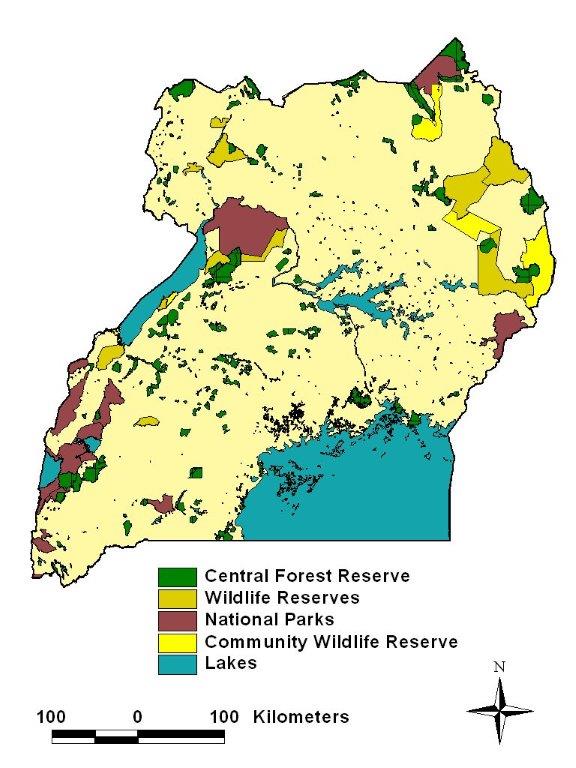![]()
Conservation in Uganda
Uganda is one of the richest countries in Africa for biodiversity conservation, ranking second richest for mammals (and 13th in the World), second for birds, and seventh for higher plants. This is because several major Biomes meet here, each with their associated fauna and flora. Uganda is also home to several species whose global range is mostly confined to Uganda, such as mountain gorillas, Rothschild giraffe, Uganda mangabey, and Nahan’s francolin. Several wetland areas are also protected under Uganda law and managed by Wetlands Division of the Ministry of Environment.with low population sizes or are declining in number. In order to do this we have to address many challenges that include poaching of wildlife,habitat loss to agriculture, competing land uses and the recent oil developments in the country.This web site summarises what WCS Uganda is achieving with its partners and some of the key needs for conservation in this amazingly beautiful country.
WCS in Uganda

WCS has been supporting conservation in Uganda since 1957 and we have supported conservation projects almost every year since this time, making WCS the oldest organization supporting conservation in Uganda.
Much of our support has been to Ugandan scientists for conservation research.We supported conservation of Kibale Forest for many years during the insecurity of the 1970s and 1980s and established the Makerere University Biological Field Station in that forest. Our knowledge about the biodiversity of that forest and surveys we funded of Bwindi Impenetrable Forest led to the creation of both areas as National Parks in the early 1990s.
Our current focus in Uganda is on three key landscapes which are critical for conservation: Greater Virunga Landscape, Murchison-Semliki Landscape and the Kidepo Landscape. We also focus on several large mammal and bird species because these are species that are threatened with low population sizes or are declining in number. In order to do this we have to address many challenges that include poaching of wildlife,habitat loss to agriculture, competing land uses and the recent oil developments in the country. This web site summarises what WCS Uganda is achieving with its partners and some of the key needs for conservation in this amazingly beautiful country.